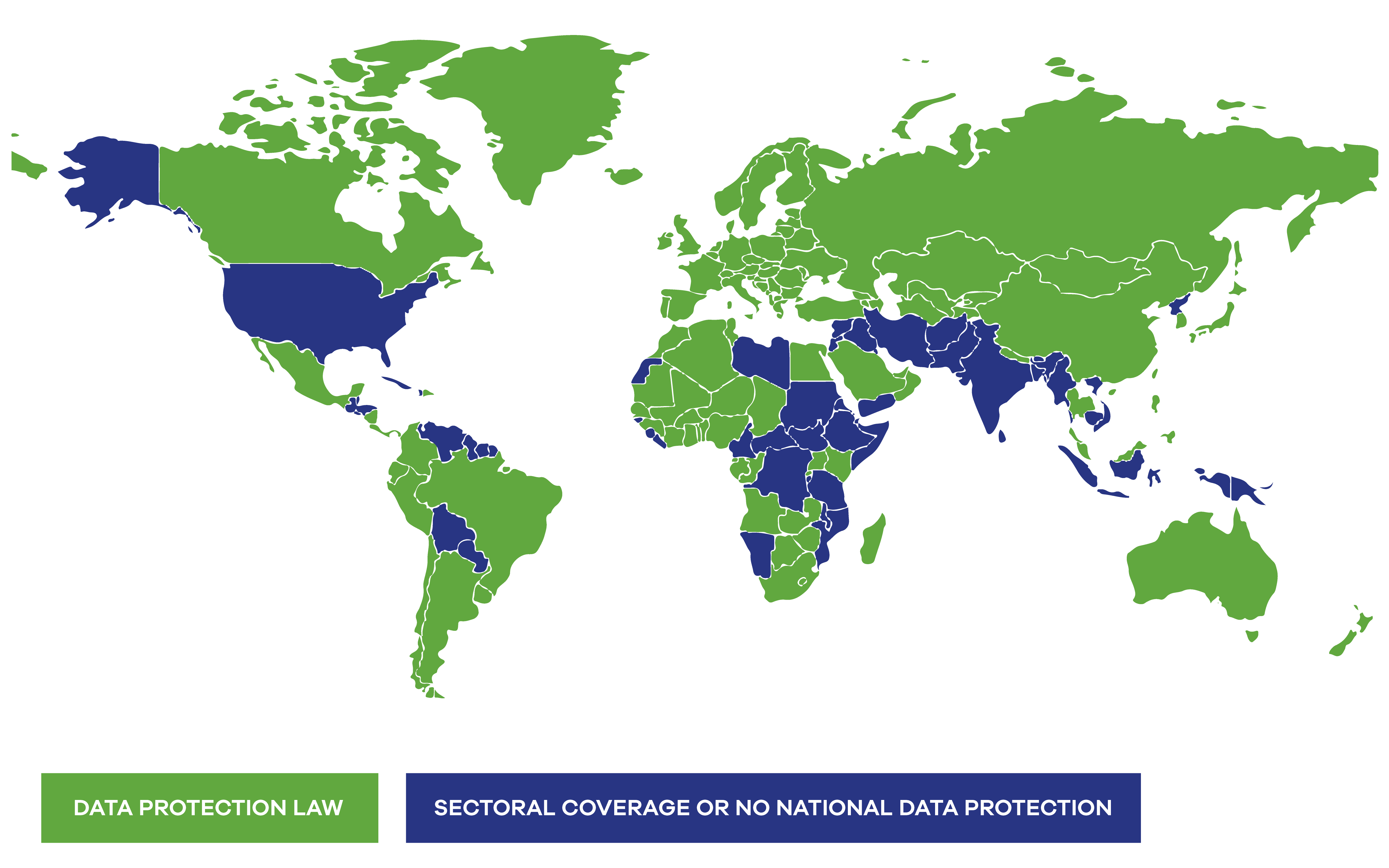Compliance Matters: Workday, Document Management & Protecting Employee Data
As the financial and reputational costs of non-compliance escalate, aligning document management with Workday only serves to benefit organisational and employee data privacy. Here, we explore the top-line considerations for proactive employee document compliance and security in an evolving data privacy landscape.
Employee documents and the complex web of global data privacy regulations
With the rise of data protection laws, such as GDPR and its equivalents globally, there is heightened scrutiny on how businesses handle personal data. Managing Personally Identifiable Information (PII) in the workplace now carries non-compliance risks and penalties like those of financial data. Despite this, employee documents, rich with sensitive personal data, often represent a functional and compliance gap in HRIS planning and implementation.
Across the world, 143 countries have data protection rules and this number continues to grow. These laws are ever-changing, increasingly nuanced, and require businesses to continually raise their own data protection standards. This is a particularly important consideration for business-critical functions like HR, where more personal data is processed and a higher level of employee data privacy is expected. When document management exists on the fringes of, or is completely separate from Workday, it can become exceptionally challenging and resource intensive for businesses to remain compliant in a multi-jurisdictional context.

Companies operating globally must navigate this intricate legal landscape, ensuring that their practices and systems align with the specific obligations of each region. In the United States, according to the International Association of Privacy Professionals, there were just three comprehensive privacy laws passed (California, Maine, and Nebraksa) in 2019, compared to 13 passed and 12 active bills in 2023.

In India, now the most populated country in the world, 2023 saw the Digital Personal Data Protection Act signed into law. And while implementation awaits guidance from the Government, it is sure to have significant impact across all sectors, industries, consumers and employees. In Switzerland, the Federal Act on Data Protection (nFADP) that became active in September 2023, requires organisations to implement appropriate technical and organisational measures to ensure security for employee data and documents.
This snapshot of regulatory change in 2023 is evidence of a trend that will continue across countries and jurisdictions. Failing to comply with these laws can result in non-compliance, risking legal consequences, financial repercussions, and damage to the organisation's reputation.
To address evolving regulatory demands and workforce expectations, Workday system or functional leaders need to adopt a scalable employee document management solution that can meet current and future privacy requirements. What’s more, it should offer a granular range of features that support the compliance programmes and policies specific to a company's geographical footprint.
Fewer systems mean less risk, better compliance
The more disparate systems a business has, the more people and processes it requires to administrate and maintain those systems and the data they contain. This not only manifests as an operational efficiency challenge, but precedes near-certain compliance issues.
Many organisations avoid this outcome by leveraging Workday to consolidate various systems, reporting, and data streams under a secure, unified platform. Employee document management, however, is frequently overlooked—generally existing as a separate, unconnected integration despite its vital role in information collection, distribution and governance.

Poor employee document management practices, such as generation and storage across a mixture of cloud-based and offline locations, can make governance highly complex. This creates a myriad of opportunities for mishandling of and unauthorised access to sensitive employee data, where breaches, non-compliance incidents, and the penalties they bring, become an inevitability.
From a process efficiency perspective, document management inside Workday enables organisations to generate and purge documents based upon Workday data.
A flexible, consolidated, and automated document management system built exclusively for and accessed from Workday avoids the security headaches, data transfer, and integration challenges one faces with an external EDM solution—all while enabling HR teams to easily uphold privacy standards mandated by law and expected by employees.
Fully-embedded, automated, compliant employee document management for Workday
Kainos Employee Document Management (Kainos EDM) is the first and only, award-winning, EDM app that provides document storage, compliance, and generation capabilities within Workday.

In the face of increasing and varied global compliance requirements, Kainos EDM utilises flexible controls to manage document purge and retention policies across different jurisdictions.
By consolidating outdated and fragmented systems into one, Kainos EDM helps to eliminate operational compliance barriers. Document security is maintained efficiently by leveraging existing Workday configurations, removing the need to reflect or manage similar controls in separate systems. This supports robust compliance with minimal manual input from SMEs.
With resources stretched in many businesses and compliance more important than ever, knowing that your document management system keeps employee data safe and your business compliant is invaluable.
